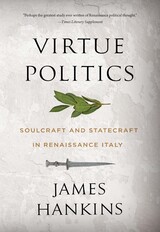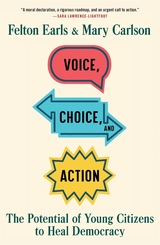3 start with V start with V

Winner of the Helen and Howard Marraro Prize
A Times Literary Supplement Book of the Year
“Perhaps the greatest study ever written of Renaissance political thought.”
—Jeffrey Collins, Times Literary Supplement
“Magisterial…Hankins shows that the humanists’ obsession with character explains their surprising indifference to particular forms of government. If rulers lacked authentic virtue, they believed, it did not matter what institutions framed their power.”
—Wall Street Journal
“Puts the politics back into humanism in an extraordinarily deep and far-reaching way…For generations to come, all who write about the political thought of Italian humanism will have to refer to it; its influence will be…nothing less than transformative.”
—Noel Malcolm, American Affairs
“[A] masterpiece…It is only Hankins’s tireless exploration of forgotten documents…and extraordinary endeavors of editing, translation, and exposition that allow us to reconstruct—almost for the first time in 550 years—[the humanists’] three compelling arguments for why a strong moral character and habits of truth are vital for governing well. Yet they are as relevant to contemporary democracy in Britain, and in the United States, as to Machiavelli.”
—Rory Stewart, Times Literary Supplement
“The lessons for today are clear and profound.”
—Robert D. Kaplan
Convulsed by a civilizational crisis, the great thinkers of the Renaissance set out to reconceive the nature of society. Everywhere they saw problems. Corrupt and reckless tyrants sowing discord and ruling through fear; elites who prized wealth and status over the common good; religious leaders preoccupied with self-advancement while feuding armies waged endless wars. Their solution was at once simple and radical. “Men, not walls, make a city,” as Thucydides so memorably said. They would rebuild the fabric of society by transforming the moral character of its citizens. Soulcraft, they believed, was a precondition of successful statecraft.
A landmark reappraisal of Renaissance political thought, Virtue Politics challenges the traditional narrative that looks to the Renaissance as the seedbed of modern republicanism and sees Machiavelli as its exemplary thinker. James Hankins reveals that what most concerned the humanists was not reforming institutions so much as shaping citizens. If character mattered more than laws, it would have to be nurtured through a new program of education they called the studia humanitatis: the precursor to our embattled humanities.

Compiling decades of fieldwork, two acclaimed scholars offer strategies for strengthening democracies by nurturing the voices of children and encouraging public awareness of their role as citizens.
Voice, Choice, and Action is the fruit of the extraordinary personal and professional partnership of a psychiatrist and a neurobiologist whose research and social activism have informed each other for the last thirty years. Inspired by the 1989 United Nations Convention on the Rights of the Child, Felton Earls and Mary Carlson embarked on a series of international studies that would recognize the voice of children. In Romania they witnessed the consequences of infant institutionalization under the Ceaușescu regime. In Brazil they encountered street children who had banded together to advocate effectively for themselves. In Chicago Earls explored the origins of prosocial and antisocial behavior with teenagers. Children all over the world demonstrated an unappreciated but powerful interest in the common good.
On the basis of these experiences, Earls and Carlson mounted a rigorous field study in Moshi, Tanzania, which demonstrated that young citizens could change attitudes about HIV/AIDS and mobilize their communities to confront the epidemic. The program, outlined in this book, promoted children’s communicative and reasoning capacities, guiding their growth as deliberative citizens. The program’s success in reducing stigma and promoting universal testing for HIV exceeded all expectations.
Here in vivid detail are the science, ethics, and everyday practice of fostering young citizens eager to confront diverse health and social challenges. At a moment when adults regularly profess dismay about our capacity for effective action, Voice, Choice, and Action offers inspiration and tools for participatory democracy.

“A book for these times as we confront the fault lines in our democracy…A deeply provocative work about the place of children in strengthening our sense of community.”
—Alex Kotlowitz, author of There Are No Children Here
“Earls and Carlson have discovered…an aspect of development previously unrecognized: how children and youth can find their voice, feel empowered to use that voice, and translate that voice into political action. This is a remarkable book.”
—Gordon Harper, Journal of the American Academy of Child & Adolescent Psychiatry
“An inspiring vision of a newly inclusive democracy.”
—Kirkus Reviews (starred review)
Voice, Choice, and Action is the fruit of the extraordinary personal and professional partnership between a psychiatrist and neurobiologist whose research and social activism have informed each other for the last thirty years. Inspired by the UN Convention on the Rights of the Child, Felton Earls and Mary Carlson embarked on a series of studies to help children find their voice in the adult world. In Romania, they saw the devastating consequences of infant institutionalization. In Brazil, they found street children who had banded together to advocate for themselves. In Chicago, Earls sought to understand the origins of antisocial behavior in teenagers, and in Tanzania, they piloted a program to guide children’s growth as deliberative citizens.
Here in vivid detail are the science, ethics, and everyday practices needed to foster young citizens eager to confront social challenges. At a moment when adults regularly decry the state of our democracy, Voice, Choice, and Action offers invaluable tools to build a new generation of active citizens.
READERS
Browse our collection.
PUBLISHERS
See BiblioVault's publisher services.
STUDENT SERVICES
Files for college accessibility offices.
UChicago Accessibility Resources
home | accessibility | search | about | contact us
BiblioVault ® 2001 - 2024
The University of Chicago Press









